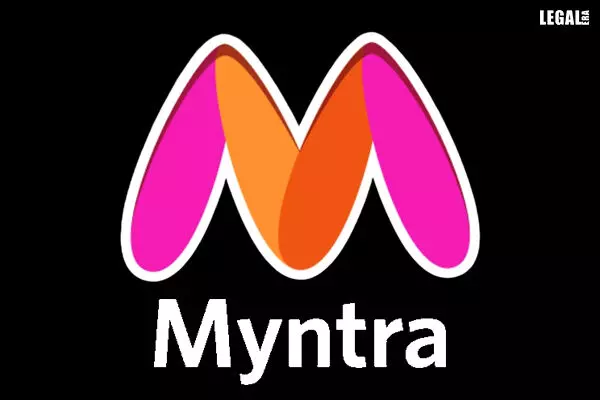- Home
- News
- Articles+
- Aerospace
- Artificial Intelligence
- Agriculture
- Alternate Dispute Resolution
- Arbitration & Mediation
- Banking and Finance
- Bankruptcy
- Book Review
- Bribery & Corruption
- Commercial Litigation
- Competition Law
- Conference Reports
- Consumer Products
- Contract
- Corporate Governance
- Corporate Law
- Covid-19
- Cryptocurrency
- Cybersecurity
- Data Protection
- Defence
- Digital Economy
- E-commerce
- Employment Law
- Energy and Natural Resources
- Entertainment and Sports Law
- Environmental Law
- Environmental, Social, and Governance
- Foreign Direct Investment
- Food and Beverage
- Gaming
- Health Care
- IBC Diaries
- In Focus
- Inclusion & Diversity
- Insurance Law
- Intellectual Property
- International Law
- IP & Tech Era
- Know the Law
- Labour Laws
- Law & Policy and Regulation
- Litigation
- Litigation Funding
- Manufacturing
- Mergers & Acquisitions
- NFTs
- Privacy
- Private Equity
- Project Finance
- Real Estate
- Risk and Compliance
- Student Corner
- Take On Board
- Tax
- Technology Media and Telecom
- Tributes
- Viewpoint
- Zoom In
- Law Firms
- In-House
- Rankings
- E-Magazine
- Legal Era TV
- Events
- Middle East
- Africa
- News
- Articles
- Aerospace
- Artificial Intelligence
- Agriculture
- Alternate Dispute Resolution
- Arbitration & Mediation
- Banking and Finance
- Bankruptcy
- Book Review
- Bribery & Corruption
- Commercial Litigation
- Competition Law
- Conference Reports
- Consumer Products
- Contract
- Corporate Governance
- Corporate Law
- Covid-19
- Cryptocurrency
- Cybersecurity
- Data Protection
- Defence
- Digital Economy
- E-commerce
- Employment Law
- Energy and Natural Resources
- Entertainment and Sports Law
- Environmental Law
- Environmental, Social, and Governance
- Foreign Direct Investment
- Food and Beverage
- Gaming
- Health Care
- IBC Diaries
- In Focus
- Inclusion & Diversity
- Insurance Law
- Intellectual Property
- International Law
- IP & Tech Era
- Know the Law
- Labour Laws
- Law & Policy and Regulation
- Litigation
- Litigation Funding
- Manufacturing
- Mergers & Acquisitions
- NFTs
- Privacy
- Private Equity
- Project Finance
- Real Estate
- Risk and Compliance
- Student Corner
- Take On Board
- Tax
- Technology Media and Telecom
- Tributes
- Viewpoint
- Zoom In
- Law Firms
- In-House
- Rankings
- E-Magazine
- Legal Era TV
- Events
- Middle East
- Africa
DCRDC Holds Myntra Liable Of Unfair Trade Practices By Unilaterally Cancelling The Order

DCRDC Holds Myntra Liable Of Unfair Trade Practices By Unilaterally Cancelling The Order
Directs it to compensate the consumer and also deposit money in the consumer welfare fund
The Bengaluru, Karnataka branch of the District Consumer Disputes Redressal Commission (DCDRC) has held Myntra liable for unfair trade practices for unilaterally canceling a consumer’s order without his consent and directing the refund as store credit in his account.
The bench comprising M. Shobha (President), Suma Anil Kumar (Member), and Anita Shivakumar (Member) thus ordered the online platform to either complete and deliver the order or pay the order amount of Rs.63,768 along with Rs.20,000 compensation and Rs.5,000 for litigation costs to the complainant. It also directed Myntra to deposit Rs.20,000 in the consumer welfare fund.
An individual, Komal Santoshkumar Jain (complainant) placed an order for two gold Lakshmi coins from Myntra.com.
Initially priced at Rs.64,206, the complainant noticed a lower price of Rs.63,768 on the coins shortly after placing the order. Despite canceling the initial order and placing a new one at a lower price, he did not receive the product by the promised delivery date.
Even after communicating with Myntra, Jain did not receive a satisfactory response. However, he was later informed that the order was canceled, and the amount would be directed as store credit, rather than refunded to his bank account.
Aggrieved by Myntra’s attitude, the complainant approached the DCDRC and filed a complaint.
In response, Myntra contended that it merely acts as an intermediary facilitating transactions between third-party sellers and consumers. Denying any deficiency in service, the Indian multinational fashion e-commerce company maintained that it acted in good faith and under its terms and conditions by refunding the amount as store credit.
The District Commission noted that in any e-commerce transaction, the consent of the consumer was paramount. It held that Myntra overstepped the boundary by unilaterally cancelling the order without the complainant’s consent. The refund directed to the credit account signified a clear attempt by the company to coerce the complainant into further transactions on its platform. This was contrary to the original investment intention of the complainant.
The DCRDC held that as the e-commerce intermediary, Myntra had the sole responsibility for issues arising during the transactions. The unilateral cancelation of the order without the person's knowledge or consent raised questions regarding the integrity of its operations.
Thus, the Commission ruled that the complainant was entitled to either the delivery of the ordered gold coins or a refund of the amount of Rs.63,768 with an interest rate of 10 percent. It further directed Myntra to pay Rs.20,000 towards compensation and Rs.5,000 towards litigation costs incurred by the complainant. It also ordered Myntra to deposit Rs.20,000 in the consumer welfare fund as punitive damages.



